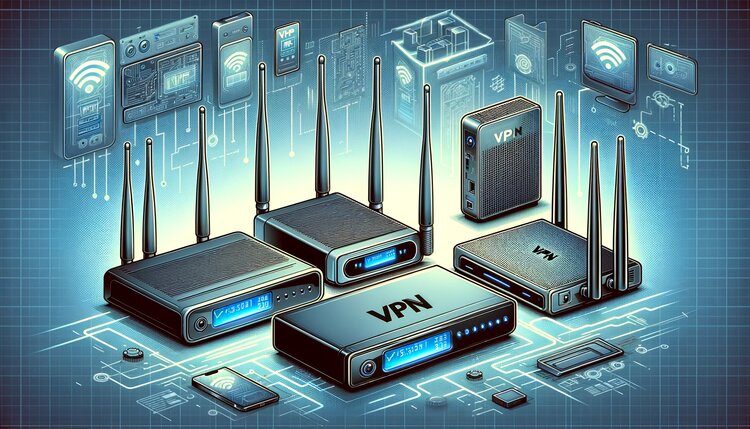Do you use a VPN service? Then you probably know that all steps related to setting up, securing outgoing and incoming data, unblocking Netflix or other streaming channels, anonymous surfing, shopping, and financial operations via the internet can be controlled through suitable applications and clients. So, is it even necessary to consider VPN routers and is it worth spending time setting them up? Definitely yes, read the following text and you'll probably agree.
What Can You Use a VPN Router For?
A router with VPN has practically the same effect as a commonly run application for desktop or mobile VPN, but the difference lies in the scope of specific usage. This means that, for example, when using a premium VPN service, you are limited by the number of connections allowed by your provider and can only use your own devices. With a VPN router, you get rid of these limiting issues and gain several additional benefits.

What Else Does a VPN Router Offer?
- When you use a network connection through a VPN router, you are not limited in the number of connections. Therefore, you can connect any number of devices and share the encrypted connection with friends or guests without having to worry about account sharing (which most VPN services do not allow).
- Just one permanent login is enough, no need to repeat it. This way, you also avoid accidentally forgetting to log into the VPN network, as the startup occurs automatically.
- As for setting up the VPN router, there is no need to worry about anything else, just enter the login details once (the first time). This solution will certainly be appreciated by users who use VPN on multiple devices.
- VPN connection through the router is available continuously, and you can stay connected to your favorite server all the time (if you leave the VPN router on, of course).
- If you use a smart TV or streaming console (such as Amazon Fire TV, Apple TV, Chromecast, etc.), these devices do not have native VPN support - but with a VPN router, you can add them to the list of secured devices. VPN routers are also an optimal choice if you want to have encryption and global access to your favorite programs.
Of course, there are also certain disadvantages and shortcomings, so let's look at them as well:
- The relatively high price can deter some people who are looking for a suitable solution, but savings can be made, for example, by upgrading the software of the router, or by purchasing a router that is VPN compatible.
- A larger number of connected devices can naturally have a negative impact on overall performance, so there could be a reduction in speed.
- There may be a reduction in the flexibility of the server, for example, if you have two favorite locations between which you often switch. A VPN router simply is not as flexible as a regular VPN client. However, some models of VPN routers have already introduced the possibility of setting up more than one server.
How to Get a VPN Router?
Basically, there are two options available - either you directly purchase a device with built-in VPN support, or you upgrade your own router (if it is a type that allows this modification). Routers can be divided into three basic groups for clarity:
- A VPN-compatible router, which you will most likely purchase if you have decided to buy a new router and do not want to waste time with setup (configuration sometimes has to be paid for separately). In such a case, think about intuitive software and native Open VPN support.
- A pre-configured VPN router offers the fastest and extremely easy installation, although it is not among the cheapest solutions. Always choose a proven and tested brand, avoid suspiciously cheap, unbranded models.
- Upgrading an existing router is a cheap solution, but you have to overcome the challenge of performing a so-called "flashing." This term refers to the installation of advanced firmware into the router - it can only be done with certain types that support installation, which needs to be verified in advance. Popular types of firmware are mainly DD-WRT and Tomato.